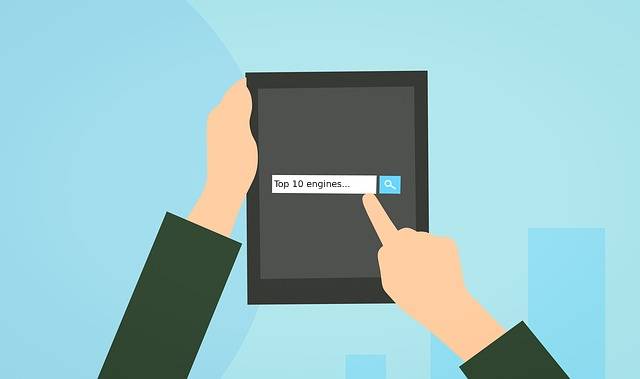How Often Are The Tyres Recommended To Be Replaced?
Find Used Engines and Transmissions for a Great Price! Live Assistant For Used Engines Call 1800-518-9776

Tyres frequently fall to the wayside when it comes to automobile maintenance. They affect security, efficacy, and fuel economy directly, making them one of the many important parts of your car. A pleasant and safe driving experience depends on routine tyre maintenance and replacement. But how frequently should tyres be changed? In this article, we'll examine how frequently tyres should be replaced, examine why this is important, provide advice on how to take care of tyres, and help you make wise selections.
Why is tyre care so important?
Let us look at the importance of tyre care.
-
Improved performance: New, well-maintained tyres can greatly improve the steering, braking, and general performance of your car. This is essential for safe driving in emergency circumstances.
-
Fuel economy: A vehicle's fuel economy is increased when its tyres are in good condition since they lower rolling resistance. You can also save money at the gas pump by having properly inflated tyres.
-
Safety first: the one point of contact between your car and the roadway is where your tyres are. Tyres that are worn out or damaged increase the risk of accidents, decrease control, and decrease safety for you as a passenger and other drivers.
-
Cost savings: Changing your tyres as needed might help you keep your car running longer. Tyre neglect can cause the axles and alignment of the car to prematurely wear out, necessitating expensive repairs.
How often is tyre replacement recommended?
Here are a few things that indicate the time to change the tyres. :
-
Age of tyres: Even if a tyre has enough tread, it can nevertheless degrade over time. Regardless of tread depth, manufacturers typically suggest swapping tyres every six to 10 years. The manufacturing date is indicated on the sidewall with a four-digit code. The week is denoted by the first two numerals, while the year of manufacturing is denoted by the final two digits.
-
Driving practises and traffic situations: Your driving practises and the traffic situations you encounter might affect tyre wear. Tyre wear can be accelerated by frequent driving on unpaved roads, reckless driving, or driving at high speeds. When this occurs, check your tyres with greater frequency and be ready to replace them more quickly.
-
Tread depth: Tread depth is the most typical indicator that a tyre needs to be replaced. On slick roadways, tread spreads water and gives traction. When a tire's tread depth hits 2/32 of an inch (about 1.6 mm) or less, experts normally advise replacing the tyres. Check local laws, as certain regions and nations have minimum tread depth standards.
Tips for tyre care
Here are a few tips to take care of your vehicle’s tyres.
-
Rotation and balancing: Rotate your tyres frequently to guarantee uniform wear on all four of them. Your tyres' lifespan and the performance of your car are both improved by balancing them.
-
Regular inspections: Check your tyres frequently for signs of wear that aren't uniform, such as cuts, punctures, bulges, and cracks. Early problem detection can help avoid bigger complications later on.
-
Seasonal considerations: In areas with distinct seasons, think about using winter tyres in the winter and summer tyres or all-season tyres in the summer. Both safety and tyre life may be increased as a result.
-
Proper inflation: Maintain the suggested tyre pressure according to your vehicle's requirements. Tyres that are either underinflated or over-inflated will wear unevenly, use less fuel, and handle-less well.
-
Tyre alignment: Regularly check the alignment of the wheels on the vehicle. Misalignment can affect handling and result in uneven tyre wear.
Conclusion
It is important to take tyre replacement seriously. Your tyres' condition affects your safety, your car's performance, and fuel economy. It's crucial to understand when and exactly how often to change them to keep your car running smoothly. Always check your tyres for wear and damage, keep an eye on the tread depth, and abide by any local laws and manufacturer guidelines.
We, at Used Engines, are a team dedicated to providing our customers with the best used engines and transmissions, along with superior quality services.
related
You May Also Like

Which BMW Has the Most Horsepower?
A car is useless if it doesn’t have good horsepower. Just imagine driving your car with sluggish acceleration and it drags on the road whenever you take it for a spin.
Read Article
10 Best Engines Made So Far By Top Engine Manufacturers
Over the years, the car industry has seen major changes. Car engines have become smarter and it looks like every new engine that rolls out is better than the other.
Read Article
How to Make Your Car Last Forever?
Isn’t it lovely when a new car works the way you want? The gears shift smoothly and the wheels roll without dragging against the road. But as your car gets older, you’ll notice that it doesn’t drive smoothly, has lower fuel mileage, and overheats easily.
Read Article